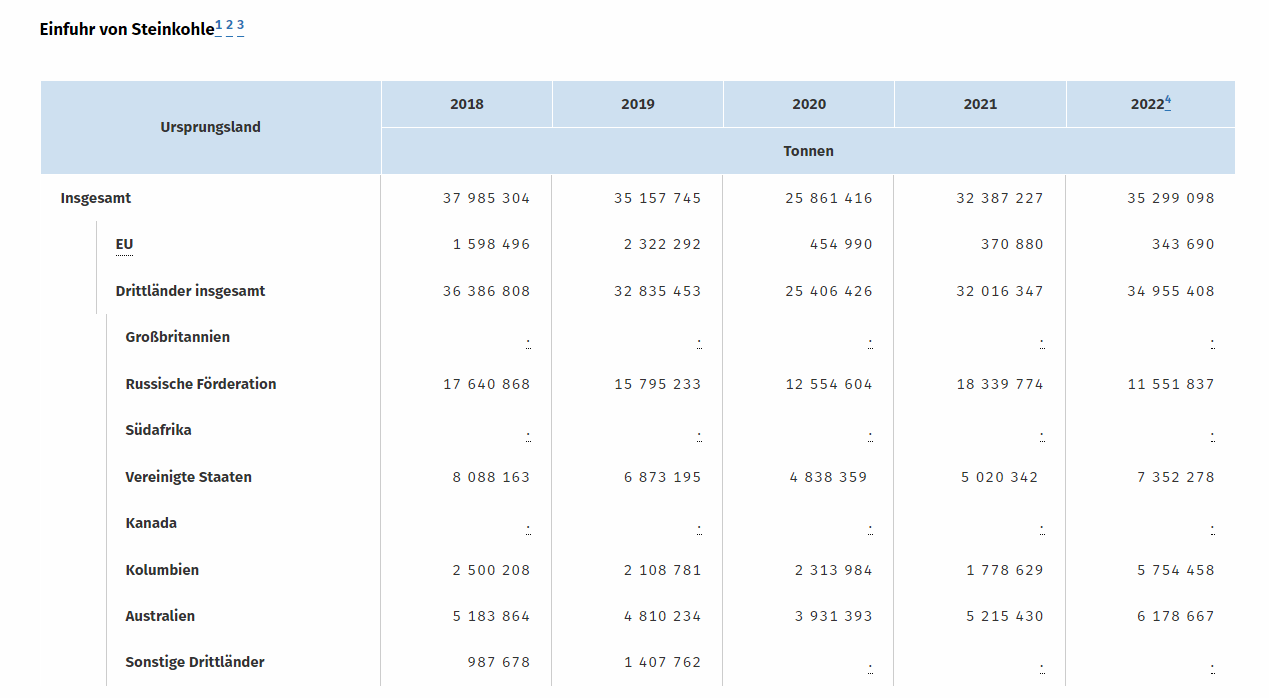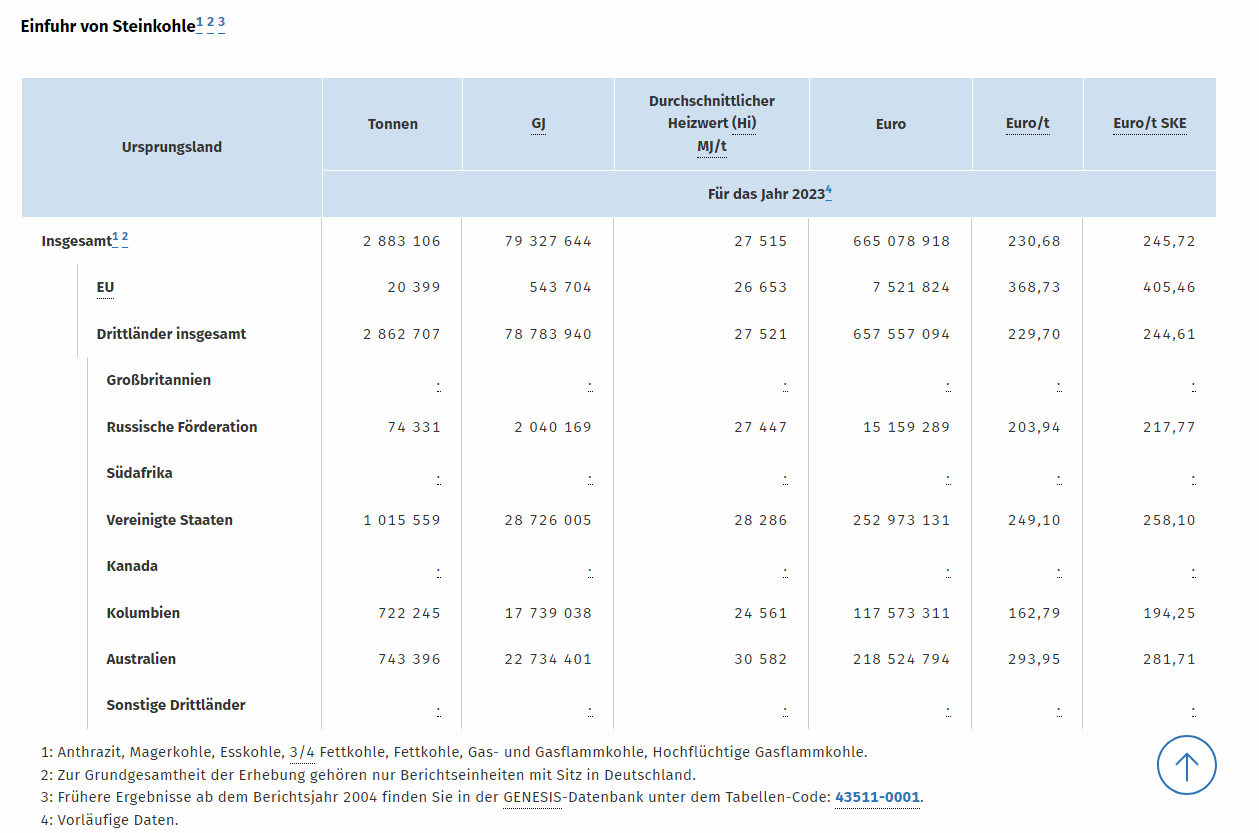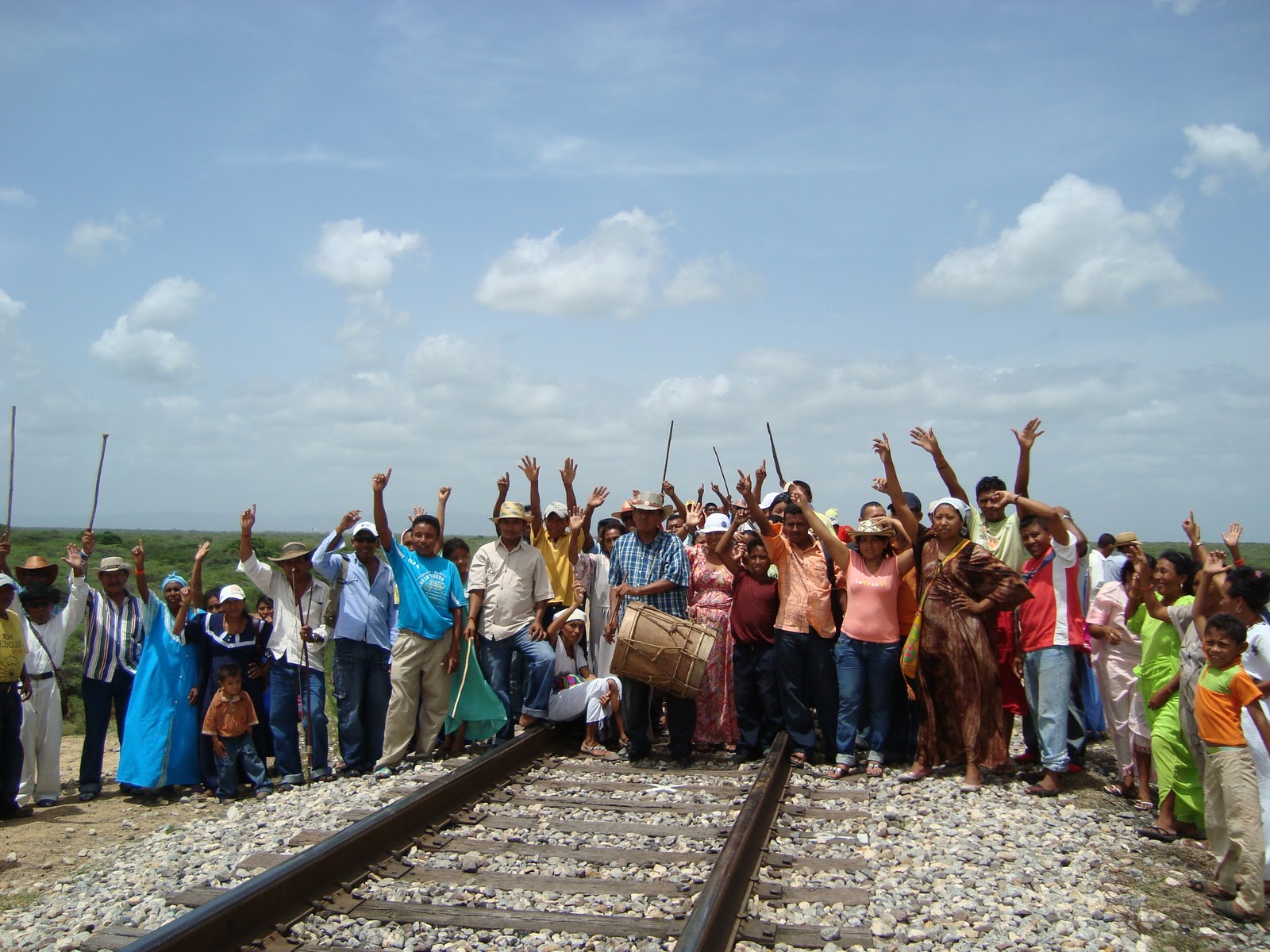Wayuu peasants block a logistics route of the coal mine
Colombia: The FRG is walking over corpses for its energy security
In May 2022 we reported on how German imperialism, in the wake of Russian imperialism's war of aggression against Ukraine, has stepped up its efforts to ensure energy security for its economy and social peace in the country by, among other things, importing more coal from Colombia. In this way, the energy demand of German imperialism, which it wants to meet through Colombian coal, is forcing the oppression and plundering of poor peasants and indigenous people in Colombia.
The coal that German imperialism buys in Colombia through energy monopolies like RWE, Steag or E.ON comes from the largest coal mine in Latin America. The mine we are talking about is called "El Cerrejon", by locals only called "the monster" and is located in the second poorest province La Guajira. On an area of 69,000 hectares, up to 30 million tons of coal are mined here annually, depending on demand, using 30 million liters of water per day. The Wayuu people lived and still live on this area. One of the oldest indigenous groups in Latin America, they fought against the European conquerors during the colonization of Latin America. The operating company of the coal mine is now solely the Swiss commodity and mining monopoly Glencore, which at the present moment is the largest and leading monopoly in this industry worldwide.
An Arte report shows how Glencore operates. Wayuu tribes are evicted from their villages with the help of armed gangs and cops and their houses are demolished in order to mine more coal. The remaining Wayuu are forced to move to the edge of the giant coal mine, where they are affected by above-average levels of particulate pollution from coal mining, which in turn leads to an epidemic of respiratory and lung diseases such as bronchitis and pneumonia. These diseases cannot be treated adequately due to the lack of basic medical care in the countryside, which means that sick Wayuu have to travel whole days to get to the nearest hospital. The lack of basic medical care in the countryside is due to the development of bureaucratic capitalism by the imperialists in Colombia, where the countrys independent, democratic development has been hindered, which is why especially, but not only in the countryside, backward semi-feudal conditions exist. Because Glencore floods the roads around the mega-mine with water to absorb some of the particulate matter, the locals can only get about by tractor transport, which makes every trip and medical transport more protracted and a torture for their health.
The Wayuu also suffer continuously from thirst and hunger. A study from 2015 concluded that only four percent of the Wayuu have access to clean drinking water and 77 percent of the Wayuu do not have safe access to food and therefore suffer from malnutrition. This practice leads to an immense increase in child mortality. In recent years, over 5000 Wayuu children have died from hunger, thirst and lack of basic medical care.
So what role does the demand of German imperialism play in the exploitation and oppression of the Wayuu? It is true that the Swiss monopolist Glencore is the main player, but it is German imperialism and all other coal importers that are creating the basis for this problem in the first place. As recently as the year 2020, Glencore and the then co-owners of the coal mine, BHP Group and Anglo American, reported the lowest coal exports in 18 years. In fact, only 13.6 million tons of coal were exported that year, a 48 percent drop from the previous year. As a result, many mines were closed and shut down. Then came the war of aggression of the Russian imperialism on Ukraine and led to the fact that particularly German imperialism, which was in a dependence on Russian gas and coal, had to look for new solutions for its energy problem.
A look at the statistics gives an answer to how the German imperialists had to change their energy supply. In 2021, the year in which the Russian war of aggression began, only 1.7 million tons of coal were imported from Colombia, while 18.3 million tons were imported from Russia. In the following year 2022 the FRG imported according to an article of the Deutsche Welle already 7.3 million tons of coal from Cerrejon and from Russia only 11.5 million tons. In the current year the numbers of the Federal Statistical Office speak an even clearer language. By May 2023, only 74,000 tons of coal had been imported from Russia. From Colombia in the same period 722,245 tons were imported, which makes 25 percent of the total imports of coal into the FRG. It is to be assumed that in the course of the year with regard to the winter still much more coal from Colombia into the FRG is imported.
 |
 |
It is precisely this increase in demand from German imperialism that is driving Glencore to expand its operations in Cerrejon. When more coal is in demand, more coal must be mined, ergo more Wayuu must be displaced, threatened and murdered. Because the demand of the German imperialists for cheap alternatives to Russian energy, becomes concretely the demand to exploit the Wayuu land even more, to contaminate it even more and also necessarily the basis for the expulsion of more Wayuu families from their land. This shows once again the principle of how problem solving by the imperialists works, namely always in the search for a deeper and more thorough exploitation of the masses, in particular of the oppressed nations.
A vivid example is the case of the Bruno River. The Bruno is the last natural source of drinking water in the region for the Wayuu, who are plagued by water shortages, and is therefore essential for their survival. Since 2022, with increasing its production capacities, Glencore has been trying to divert this river for coal mining. To prevent the detour of the river for Glencore's coal mining operations, Wayuu groups organized resistance to this project. Glencore's response to this was that one of the indigenous leaders was then visited by three men on motorcycles and threatened with weapons.
This situation shows once again that imperialism is reaction all along the line and not a step towards progress. It is all the more important, as proletarian internationalists, to decisively denounce the murderous plots of German imperialism and to close ranks with the people in the oppressed nations who have to suffer under these plots.











